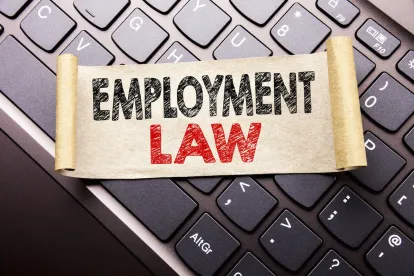On July 1, 2020, several pieces of legislation that significantly change the Virginia employment law landscape will go into effect. These laws are generally employee friendly and will have substantial and long-term impact on employment litigation in the state. The new laws incentivize plaintiffs to file in state court and make removal to federal court more challenging for employers.
Increased Discrimination Protections
-
Discrimination on the basis of pregnancy, childbirth or related medical conditions is prohibited. A private right of action to pursue these claims has been created.
-
Sexual orientation and gender identity are protected classes. Accordingly, it is illegal to discriminate against employees based on their sexual orientation or gender identity at the state level. Earlier this month, the Supreme Court of the United States extended federal employment laws to gay and transgender individuals as well.
-
The definition of race discrimination has been expanded to include discrimination based on hair textures and styles historically associated with race.
-
In pursuing discrimination claims, employees are only required to demonstrate that discrimination was a “motivating factor” in the relevant adverse employment action.
-
Remedies for individuals who prevail on their claims include uncapped compensatory damages, punitive damages up to $350,000, and uncapped reasonable attorney’s fees and costs. Equitable remedies such as temporary injunctions and other orders are available as well.
Increased Wage Theft Protections
-
Employees are able to sue employers for unpaid wages. Individuals who report wage theft or initiate proceedings for wage theft cannot be retaliated against for doing so.
-
Employees that prevail on their wage theft claim can receive up to three times the owed amount of wages in addition to other fees and costs.
“Low-Wage” Noncompetition Agreements Prohibited
-
Employees that meet certain income requirements can assert a claim against their employer in the event that the employer attempts to enforce a low-wage noncompetition agreement. Individuals who report violations cannot be retaliated against.
-
Employees that prevail on their claims can recover lost wages, liquidated damages, and other fees and costs.
Increased Virginia Department of Labor and Industry (DOLI) Investigative Powers
-
After launching an investigation into nonpayment of wages for a specific employee, DOLI has new authority to investigate other suspected wage violations and unilaterally initiate proceedings on behalf of impacted employees.
Increased Penalties for Misclassified Employees
-
Employers that misclassify employees as independent contractors can be sued for lost wages, expenses, and other fees and costs.
Whistleblower Protections Expanded
-
Employees will enjoy expanded whistleblower protections, prohibiting employers from retaliating against individuals who refuse to engage in criminal acts, report violations of state or federal laws to law enforcement or government officials, specifically voice refusal to perform an action that violates state or federal laws, or testify or otherwise provide information to law enforcement or government officials in connection with proceedings regarding their employer’s alleged violation of state or federal laws.
As a result of these drastic changes, an increase in state-level filings is to be expected. Employers should take time to familiarize themselves with these new laws and seek advice where necessary.


 />i
/>i
